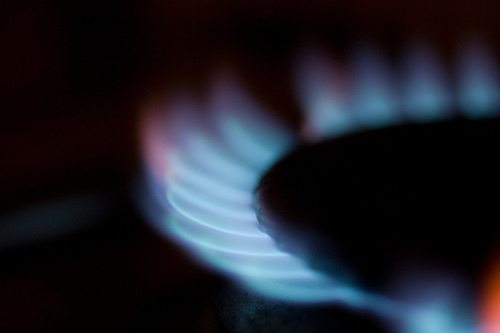

Energy
British Gas sees profits fall following energy price hike
The residential arm of British Gas has reported a dip in profits, as customers switch utility providers following its winter price hike. The warmer weather and volatile wholesale energy costs also impacted on the firm’s full year profits for 2013.
Adjusted operating profits for 2013 for residential energy supply were £571m, down from the £606m registered in 2012 and a 6% drop over the year. Profits also fell in business energy supply and services, decreasing by 19%.
The company said, “The results reflect some of the pressures that British Gas and the wider industry were under last year, with the competing demands of securing supply, reducing carbon emissions and keeping energy affordable.”
In October last year, British Gas announced a bill increase, with customers facing an average 9.2% hike. Other large energy companies also increased their prices, which sparked a debate about affordability and competition in the energy industry.
In response, the government cut back on green levies in a bid to reduce household energy bills despite consumer, industry and green organisations calling for a focus on energy efficiency.
The rising cost of energy led to consumers switching providers, with figures for November 20103 showing the number of people switching energy supplier hitting a three-year high. This is reflected in the British Gas figures, which show a 2% drop in the number of residential customers.
Chris Weston, managing director of British Gas, said, “Customers are our number one priority. As well as industry-leading service, we are committed to keeping prices and bills as low as possible through managing our costs and promoting energy efficiency in the home.
“I am confident that we now have the platform to take the business forward and return to customer growth.”
Meanwhile, speaking on the BBC Radio 4 Today programme on Thursday morning, Sam Laidlaw, chief executive of Centrica, which owns British Gas, argued that the UK has some of the lowest energy prices in Europe and that investing in new sources of gas and power is necessary and can lead to price increases.
He said, “We’re very conscious of pressures on energy bills and we will do whatever we can to keep bills as low as possible.”
Last week, energy secretary Ed Davey called on the regulator to consider breaking up the six main energy suppliers if they overcharge consumers.
In response, Laidlaw said, “There is a huge problem at the moment that uncertainty is the enemy of investment, this country needs £100 billion of investment for new power generation.
“Then we also have to recognise that companies such as British Gas actually do fulfil an essential role in bringing gas to Britain. The £14 billion of new contracts that we have entered into, we’ve now got £60 billion of commitment, of we were broken up into smaller companies we simply wouldn’t be able to enter into the sort of activity.”
Further reading:
Which? reveals more than 5.5m energy customer complaints for 2013
Government poll: 77% of Britons support renewable energy
Energy bills are going up – and it is mostly out lack of responsibility to blame
7 in 10 UK households left the heating off because of winter bill worries


 Environment12 months ago
Environment12 months agoAre Polymer Banknotes: an Eco-Friendly Trend or a Groundswell?

 Features11 months ago
Features11 months agoEco-Friendly Cryptocurrencies: Sustainable Investment Choices

 Features12 months ago
Features12 months agoEco-Friendly Crypto Traders Must Find the Right Exchange

 Energy11 months ago
Energy11 months agoThe Growing Role of Solar Panels in Ireland’s Energy Future





























